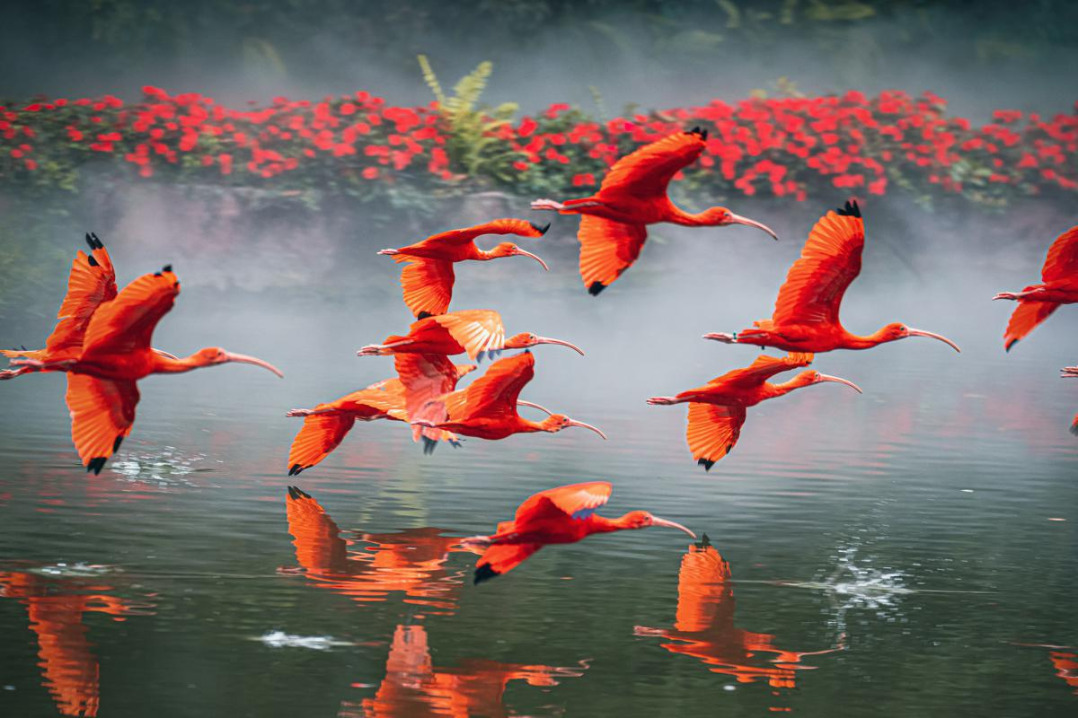Endangered black storks prosper at wetland

LANZHOU — With the implementation of enhanced ecological conservation measures, the Heihe Wetland National Nature Reserve in Northwest China's Gansu province is experiencing a remarkable boom in migratory bird populations, particularly the endangered black stork.
The latest data from the reserve's management bureau reveals that 82 black stork nests have been spotted in Zhangye city, 32 of which are active breeding nests. This year has seen a successful fledging of 27 young black storks, an increase of four nests from the previous year.
"The black stork is incredibly selective when it comes to its habitat, especially its foraging waters," said Shan Guofeng, a dedicated official from the nature reserve's management bureau. "Their stable breeding in the Heihe wetland is a testament to the positive impact of our environmental efforts. It's rewarding to see our hard work bearing fruit."
The reserve on the Central Asian migratory route plays a pivotal role as a stopover and resting place for migratory birds. It is home to a significant population of both breeding and migratory black storks, making it an ideal spot for research into their breeding and habitat.
Committed to a deeper understanding of the black stork's breeding habits and migration patterns, Shan and his team have been conducting meticulous monitoring since 2021. Their daily routine involves walking an average of 15 kilometers, spending 10 hours in observation, and meticulously documenting observation logs, with a total of more than 10,000 photographs taken so far. "Black storks start mating and breeding in early March and lay eggs by the end of that month, and the incubation period lasts for approximately 35 days," Shan explained, recalling a record observation of 627 black storks in a single season.
Ongoing observations by Shan's team have highlighted a decrease in the feeding frequency of black storks during the low water season of the Heihe River. They have integrated food supply enhancement into their daily operations, alongside other protective initiatives such as wetland restoration and enhanced monitoring, aiming to help restore the species' population.
This year, Shan and his team are embarking on a project to establish a specialized feeding area for the black storks.
"Given their high alertness, we need to take into account all aspects, including shallow water zones and biological isolation areas. A comfortable environment with abundant food is crucial for their breeding success," Shan added.
By the end of last year, the variety of bird species in the wetland reserve had expanded to 241, representing a significant increase of 86 species recorded since the reserve's inception.
Xinhua
- Beijing's Summer Palace rolls out multi-language translation machine
- Wildlife rescuer takes care of vulnerable animals like a parent
- Zhang Youxia meets with chief of Pakistani army
- Model UN conference gathers global students in Wuxi
- Chikungunya fever cases reported in Guangzhou
- Qingdao to host 10th China International Copyright Expo




































